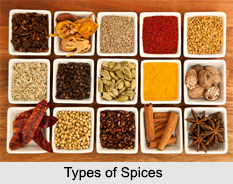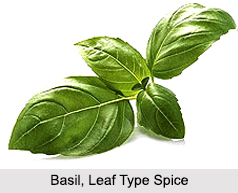 Indian spices exhibit a great variety which adds different flavours and aroma to the food making them more luscious and in certain cases healthy. There is a popular belief that spicy foods are bad for health. This belief is not only far from the truth but also that; spices in fact have medicinal properties and are good for health.
Indian spices exhibit a great variety which adds different flavours and aroma to the food making them more luscious and in certain cases healthy. There is a popular belief that spicy foods are bad for health. This belief is not only far from the truth but also that; spices in fact have medicinal properties and are good for health.Medicinal Properties of Different Types of Spices
Spices are well known as appetizers and digestives and are considered essential in the culinary art all over the world. Some of them have anti-oxidant properties, while others have preservative properties and are used in some foods like pickles and chutneys etc. Some spices also possess strong anti-microbial and antibiotic activities. Many of them possess medicinal properties and have a profound effect on human health. They cleanse the oral cavity from food adhesion and bacteria; they may help to check infection, and to protect the mucous membrane against thermic, mechanical and chemical irritation. Spices possibly activate the adrenal-cortical function and fortify resistance and physical capacity. Stroke volume, blood pressure and stroke frequency can be markedly diminished or augmented by means of spices. Spices inhibit thrombus formation and accelerate thrombolysis.
Production of Different Types of Spices
India has a glorious past, pleasant present and a bright future with respect to production and export of spices. Pepper, cardamom, chillies, turmeric and ginger are some of the important spices produced in India. India is a great exporter of spices.
Different Types of Spices
 The important spices produced in India are black pepper, cardamom, ginger, turmeric, chilli, garlic, coriander, cumin, fennel, fenugreek, celery, clove, nutmeg, cinnamon, tamarind, kokum, garcinia, curry leaf, saffron, vanilla and mint. Some categories of the different types of spices are as follows:
The important spices produced in India are black pepper, cardamom, ginger, turmeric, chilli, garlic, coriander, cumin, fennel, fenugreek, celery, clove, nutmeg, cinnamon, tamarind, kokum, garcinia, curry leaf, saffron, vanilla and mint. Some categories of the different types of spices are as follows:For more visit the link given below: